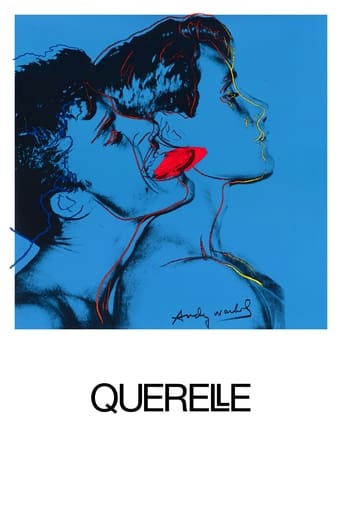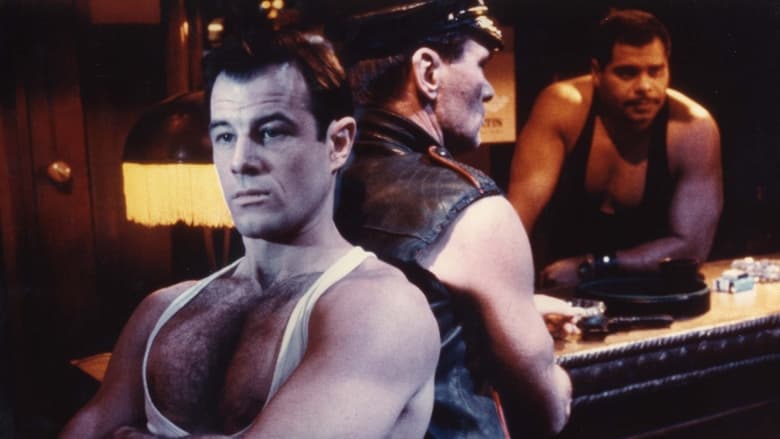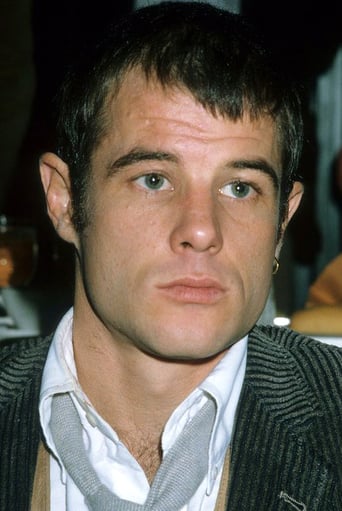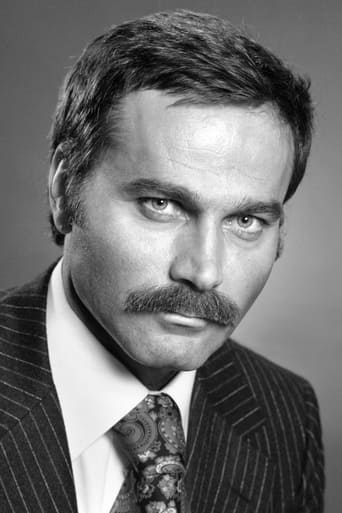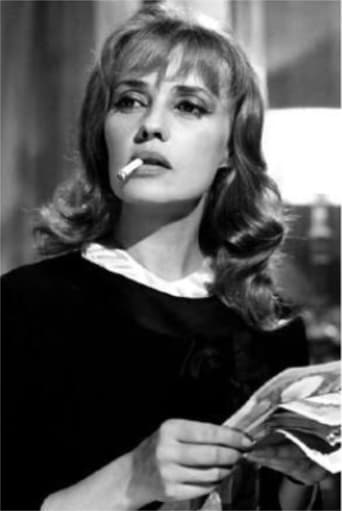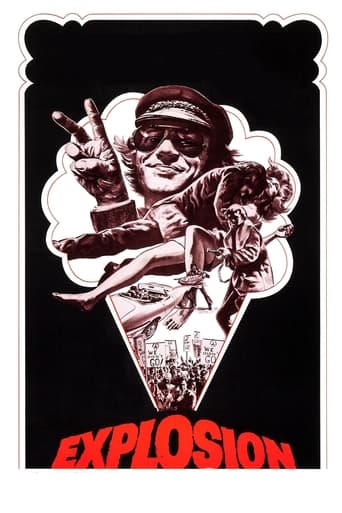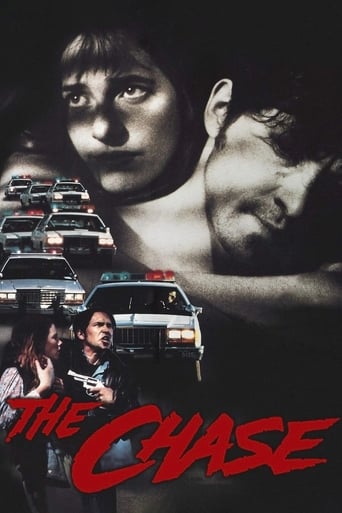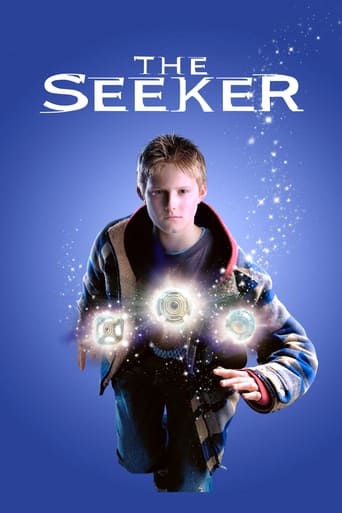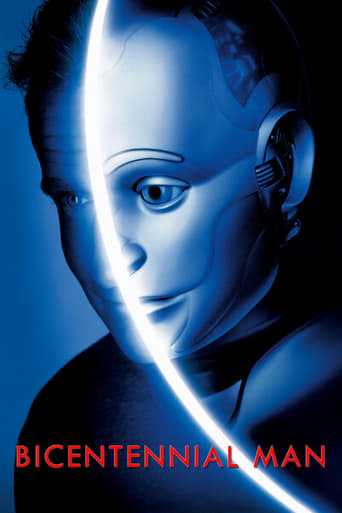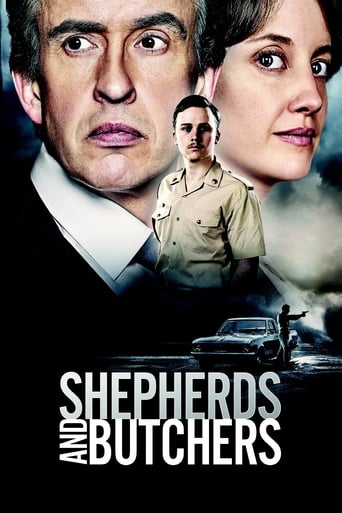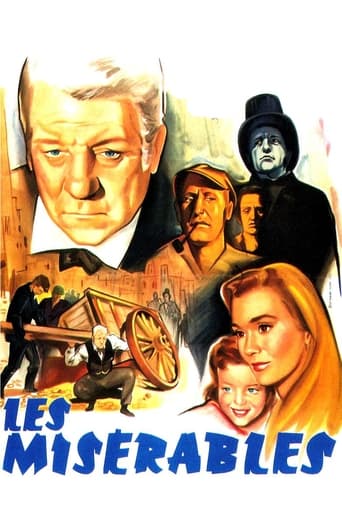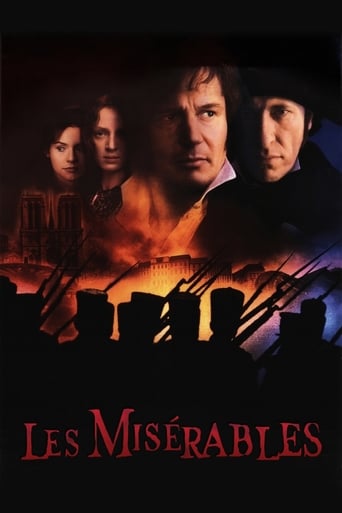Querelle (1983)
A handsome Belgian sailor on shore leave in the port of Brest, who is also a drug-smuggler and murderer, embarks upon a voyage of highly charged and violent homosexual self-discovery that will change him forever from the man he once was.
Watch Trailer
Cast


Similar titles
Reviews
Don't listen to the negative reviews
The performances transcend the film's tropes, grounding it in characters that feel more complete than this subgenre often produces.
Wow! What a bizarre film! Unfortunately the few funny moments there were were quite overshadowed by it's completely weird and random vibe throughout.
The acting in this movie is really good.
This highly stylized and necessarily homoerotic adaptation of Jean Genet's "Querelle de Brest" goes limp, mostly whenever the annoying narrator interrupts. But is hard to dislike completely with Brad Davis (as Georges Querelle) leading the pack. You know he wants it. While he most certainly does not resemble his frequently mentioned as supposedly look-alike brother Davis, Hanno Pöschl (as Robert and Gil) is the second most valuable cast member, performing a "pas de deux" with Davis that unfortunately lacks a climax. No surprise to reveal the female member of the cast, 1950s beauty Jeanne Moreau (as Lysiane), appears wasted and washed-out compared to 1980s beauty Laurent Malet (as Roger Bataille) and the men. Franco Nero (as Lieutenant Seblon) tries to keep a straight face, looking at things from afar. Drug-overdosing before release, director Rainer Werner Fassbinder kept his distance.****** Querelle (8/31/82) Rainer Werner Fassbinder ~ Brad Davis, Hanno Poschl, Franco Nero, Jeanne Moreau
"Querelle" was probably the most psychoanalytical of all films. Not really a straight adaptation of Genet's work, but as the title says "a film about Jean Genet's 'Querelle De Brest'". It is a film of double images, of reflections within reflections, frames within frames, repressed desire, submission and oppression within a social context, neurotic fetishism and ultimately religious salvation. Amidst this increasingly deep mosaic of the characteristics of the human psyche, a wild expressionistic decor and background only adds to the internal structure of what is already an "internal" film.As Fassbinder explores the structure of his homosexuality, one gets the impression that Querelle and Robert (the two brothers) are actually the same person (as suggested in the ending when Lysiane, throwing the Tarot cards, declares that "you don't have a brother, you never really had a brother" amidst a sense of relief in Robert). Robert is the heterosexual (also logical and cautious), Querelle is the homosexual (wild and self-destructive). The two brothers are constantly in conflict and tension, though it's suggested that the tension originates from deep love.That really is oversimplifying things, as the film gets increasingly complex and filled with dense layers of meaning and psychoanalytical catharsis. The Querelle character literally disintegrates as the film proceeds. As suggested, his pact with the devil - through the betrayal of his friend Gil, also a criminal - sanctifies his crimes and crime desires. The voyeur of Querelle's story, Lieutenant Seblon, is the victim of Gil's attack (as planned by Querelle). Gil takes the responsibility for Querelle's crime (the ritualistic murder of accomplice Vic who had rejected him) and also for his own crime (the murder of Theo who had hurt his male pride), but does not take the responsibility for the attack on Seblon (the voyeur who idealizes love). Seblon later identifies Robert as the culprit for the attack (Robert and Gil are played by the same actor). Querelle literally vanishes through this self-destructive course and virtually surrenders his essence to Seblon. Querelle is no more and only Robert remains.The four main characters are Querelle, Robert, Gil and Seblon. Essentially they all represent aspects of the same whole (the whole is arguably Fassbinder's psyche). They mesh with each other, interweave with each other, part of them covers part of each other. Querelle represents the self-destructive, criminal and homosexual. Seblon represents the idealized, loving and religious homosexual. Robert represents the logical and cautious heterosexual. Gil represents sort of the middle ground between Querelle and Gil. The true responsible for the attack on Seblon is Querelle, he had planned it all along. It was Gil who committed the act, Robert had seemingly nothing to do with it, but Seblon recognizes Robert as the one responsible. By planning the attack Querelle self-destructs, commits suicide by surrendering to the voyeur, utopian Seblon, and in the end it is Robert who emerges as the victor while the rest return to being repressed. Behind the scenes, Nono (the policeman) and Mario (police co-operator, drug dealer and high-class) are the social backbone, both penetrators. The woman (Lysiane) is a decorative piece. The world and society is seen as completely male.
What an absolute peerless masterpiece this is. A glorious and sensual dream about subjectivity, objectification, image-making, masculinity and the disavowal from the male world of the abject female traits. But these traits cannot be disavowed, because all power needs fascination and fascination requires abjection.The film traces Querelle's journey from rigid singularity through an induction into a masculine world to an abject melting into the arms of the weakest of male figures. Seblon, excluded voyeur and viewer of Querelle's story is actually Querelle's final resting place - as we all finally rest before the images which dazzle us.An extremely ambiguous film, intricately bound within the image matrix it critiques - a weird and wonderful, fascinating world of mirrors, where all fall in love with their own idealised reflection & "each man kills the thing he loves." Certainly one of the most complex, provocative and seductive films of all time.
Perhaps 'Querelle' is a film that demands a more cultured and broad-minded viewer than I have proved myself to be, or perhaps it is pure enigmatic, overwrought drivel. I will likely never know the absolute answer to that, but I am willing to bet that past and future viewers will fall into these two groups: Those who feel that unclear character motivations, loosely constructed plot-structure and melodramatically poetic theatrics bespeak a larger sentiment, one not blatantly stated in this film; And the second group, who will leave this viewing experience raising their eye-brows in confusion, and possibly having a good laugh.This film, though wordy, probably operates most effectively in its nonverbal trappings. The sets have a bourgeois richness that is almost tactile, the direction of movement is staged and coordinated like dance in some scenes, and the lighting is one of the best uses of expressionism out side of the American film noir idiom I've ever seen.The script is an abstract exploration of people's motivations, specifically as they relate to the more carnal side of love, and there is also an underlying, equally abstract, message about the methods and means of self-exploration. All of this is told from the unique perspective of a naive, amoral young man who is, at the time that this film is set, exploring and learning about himself largely through acts of violence, sex and betrayal. Brad Davis' acting in the lead role is a strange mixture of stoic detach and reined-in anger/passion and I can not begin to describe it to someone who has not seen the film.This film, in my opinion, can not escape the onus of its "high camp factor", One gets the feeling that this is the stuff that John Waters may have cackled at in his formative years. This is not to say it's without artistic merit; it will make a glutton of your eyes with its decadent colours and rich set dressings. Chances are you will love it, or you will laugh at it, but you will surely remember having seen it.

